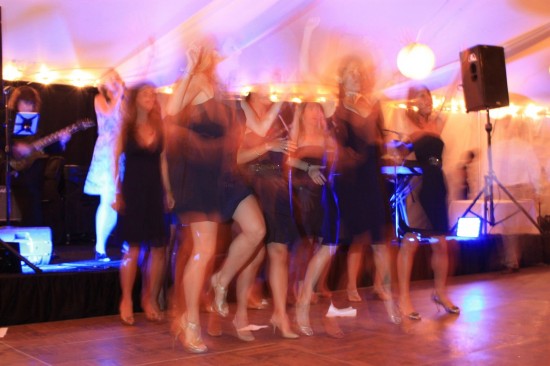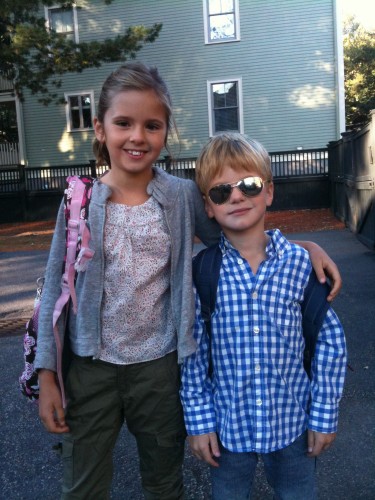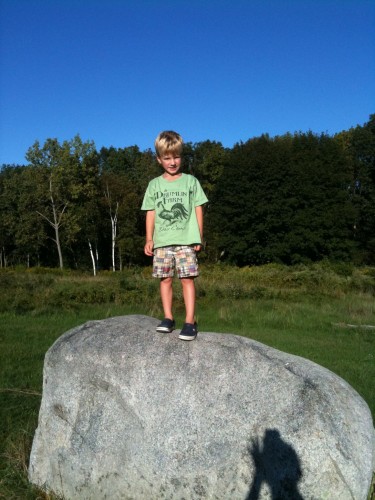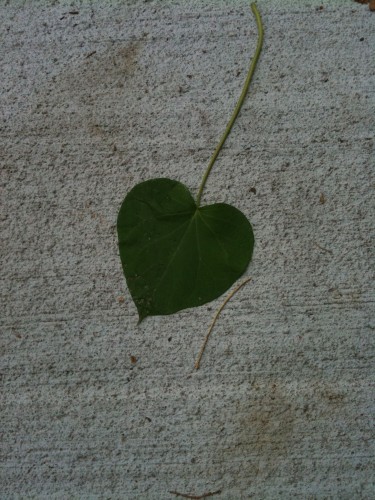I picked up Learning to Breathe knowing I’d love it. The topic appealed to me: the author’s yearlong quest to bring calm to her life. Dani Shapiro, whose opinion I trust implicitly, both blurbed it and personally told me she thought I’d like it. The description of the author as someone with a “great life” who nonetheless struggled with profound panic resonated somewhere deep inside me. So, I knew I was going to love it. But I didn’t know how much.
Priscilla Warner has crafted a universal story out of her very specific circumstance, and in so doing has established a light at the end of what many people experience as a fearful tunnel of darkness, fear, and anxiety. After a lifetime of serious panic attacks, she makes a decision to actively seek peace. She begins a regular meditation practice, explores Buddhism and mystic Judaism, and pursues a variety of therapeutic avenues. Learning to Breathe traces her steps towards peace, which are human in their stumbling and both inspiring and comforting in their success.
Describing her life before beginning her journey towards peace, Warner says that she had “always felt that [her] nervous system operated faster than normal,: for which she has taken Klonopin for years. Yet, “on the outside [she] was functioning just fine.” The chasm between outsides and insides, between what appears and what actually is, is a perilous place I know well.
One of the central themes of Learning to Breathe is Warner’s experience of her mother’s gradual but inexorable decline into Alzheimer’s. As she seeks peace, one thing she specifically wants is help with what is a challenging emotional morass. Any time studying Buddhism brings you face-to-face, almost immediately, with the central tenet that attachment causes suffering. But Warner wonders, as I have so often, “how can you love someone and not become attached?” Lama Tsondru, a teacher of Tibetan painting with whom Warner studies, tells her that if she “opens up [her] heart to others, the weight on [her] shoulders will lessen.” She begins to move towards acceptance, and at one moment where her mother demonstrates how much she has forgotten, Warner remembers the teachings of Sylvia Boorstein and observes that her “heart quivered in response to pain … Compassion took hold of me.”
Over time Warner leans into a new kind of trusting of her own body and mind. She “didn’t feel pressured to solve its mysteries” every day, and she “began to accept the unpredictability of [her] own galaxy.” I love the notion of an internal galaxy; it is a more evocative way to describe my observation that all people have a whole universe glittering inside them. This was just one of many places where Warner’s words touched something specific I’ve thought and felt, made me feel like I was reading a missive from someone who had been inside my own head. This is what I mean about the universal power in a particular story: who among us hasn’t felt lost and afraid? Warner’s story is a message of comfort to us all.
Warner finds teachers all over the place: Tibetan monks, American teachers of Buddhism, specialized therapists, and mystical rabbis. It is Rabbi Jacobson who teachers her the power of the tears, which she had always felt vaguely ashamed of, viewing them as a manifestation of the keen sensitivity for which she had often been criticized. To say I relate here is an understatement. But what Rabbi Jacobson tells her is that “people who cry in healthy ways are doing so because they sense a higher presence. And that’s beyond us. So we cry.” Warner – and I! – finds this logic reassuring, and she stops worrying about the tears that seem ever-present. I love the messages that this rabbi elucidates in Learning to Breathe. He also speaks about how life exists in the small, ordinary moments, a message that speaks directly to me:
Some of the greatest things in life don’t have to be so dramatic … It’s in the quiet moments that our lives are shaped. In homes, in cribs, in bedrooms, in the little things. That’s where it all happens.
As Warner moves to the end of her year, she begins to fully inhabit her new, hard-won peace. The universe, and the past, continue to speak to her in a variety of powerful ways. She witnesses the death of her trusted companion of 14 years, her dog Mickey, and even in the midst of that heartbreaking goodbye she realizes she had “never felt so present in my life.” She visits with another Zen priest and teacher, Roshi, who suggests that her “frequent tears … simply meant that I was touched by life.” They discuss impermanence, again, and Roshi comments that part of why cherry blossoms make people cry is “that these blossoms are so ephemeral.” I guess magnolias are my cherry blossoms: they are stunningly gorgeous, and they make me cry. During an Ayurvedic massages she experiences her father’s presence, and he tells her firmly that she was loved.
Even in impermanence, in the sea of life’s moments, some things endure. I highly recommend Learning to Breathe: it made me feel less alone, it taught me a lot about meditation and certain somatic therapies, and it fortified my belief that maybe, just maybe, there is peace out there for me yet. A message that Warner receives from a friend towards the end of her experiment sums up her book, her experience, and, in fact, nothing less than the human condition:
The convention of panic was just a thin veil for you … It cloaked the stillness and compassion that is you. It takes great courage to let it all go and to display the unbearableness of so much love.







